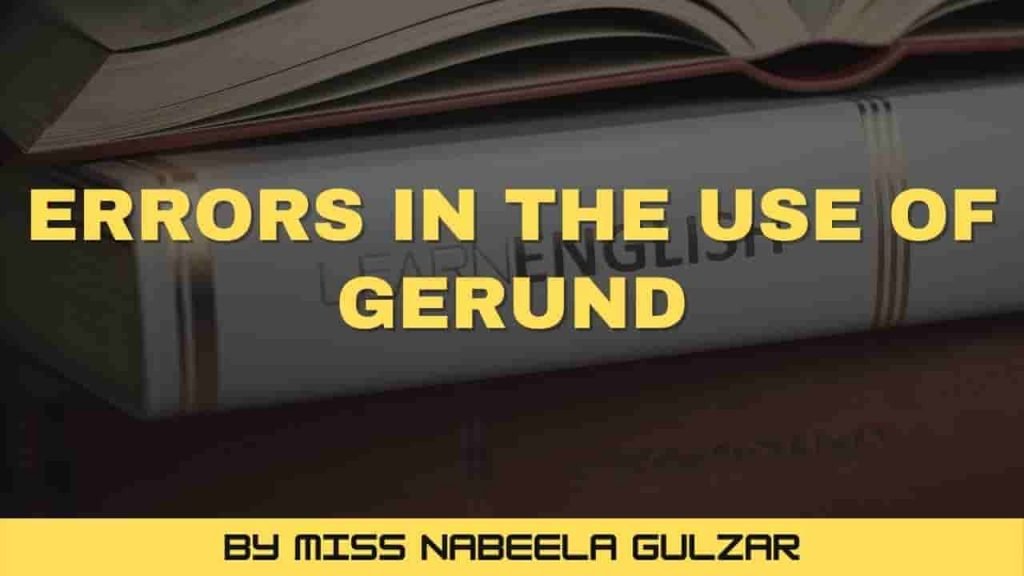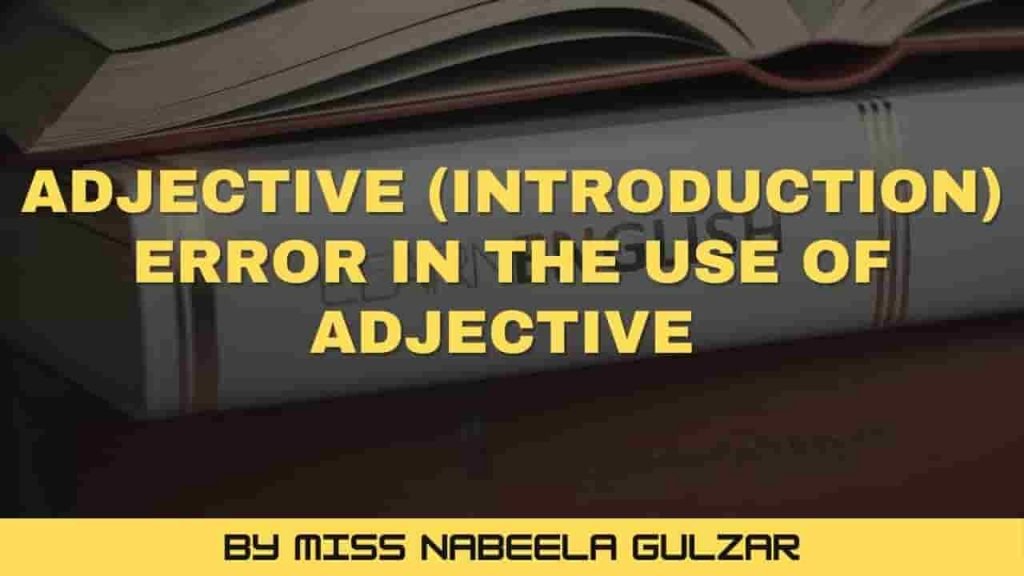Adverb
An adverb is a word that adds to the meaning of a verb, adjective, and adverb.
Examples:
- He worked hard. (verb)
- He is quite intelligent. (adjective)
- He ruled very wisely. (another adverb)
Kinds of Adverb
1. Adverbs of Manner
The adverbs which tell us how a verb is done are called adverbs of manners.
Quickly, slowly, lazily, carefully.
Examples:
- He walked quickly.
- He did it very carefully.
2. Adverbs of Place
The adverbs which tell us where a verb is done are called adverbs of place.
In, out, without, alone, below, inside, outside, forward, onwards, everywhere.
Examples:
- Speak again and I shall turn you out.
- The crowd is found everywhere.
3. Adverbs of Time:
The adverbs which tell us when a verb is done are called adverbs of place.
Even, never, now, then, since, ago, today, tomorrow.
Examples:
- I saw him today.
- Yesterday he was quite upset.
4. Adverbs of Numbers:
The adverbs which indicate the number of a verb and the occurrence of the verb are called adverbs of numbers.
Twice, often, always, never, ever, seldom, occasionally.
Examples:
- I often meet him.
- They came to me twice.
- I did it seldom.
5. Adverbs of Degree:
The adverbs which indicate the number or degree of a verb, adjective or another adverb are called adverbs of degree.
Fairly, Rather, Quite, Too, Hardly, Barely, Little, Much.
Examples:
- Hardly, I had finished the work when he came.
- He is quite right, I am very sorry.
- It is much better to leave him alone.
The Position of Adverbs
1. (a) The following adverbs are placed after the verbs.
Seldom, ever, never, occasionally.
Examples:
I often visit my family.
He seldom comes to college.
(b) If these words are used with the verb To be (is,am,are) then used these verbs after (is,am,are).
Examples:
- He is always sad.
- He is often angry.
2. Adverbs of manners are used after the verb.
Examples:
- They walked quickly.
- We marched slowly.
3. Adverbs of time are used at the end of the sentence.
Examples:
- I go to college daily.
- I cannot do it just now.
- Get out immediately.
4. Still and Yet:
Yet:
Use yet at the end of the sentence. Yet is used for negative sentences.
- I have not received your letter yet.
Still:
Still is used in positive sentences. It indicates the action is continuous.
- He is still reading.
5. Adverbs of Degree are used after adjectives and adverbs
Example:
- This is fairly a good book.
- It is too cold to walk.
Errors in the Use of Adverbs
The use of ‘Very’ and ‘Much’
1. (a) Very is used with:
Use very with the positive degree of adjectives.
Examples:
- He is much happy today. (Incorrect)
- He is very happy today. (correct)
- He is much fat. (Incorrect)
- He is very fat. (correct)
(b) ‘Very’ is used with present participles.
First form or verb + ing = present participle
Interesting, charming, loving, pleasing, fascinating, etc.
Examples:
- This book is much interesting.(Incorrect)
- This book is very interesting. (correct)
2. (a) Much is used before.
The comparative degree of adjectives and adverbs.
Example:
- I feel very happier today. (Incorrect)
- I feel much happier today.(correct)
(b) Much is used before past participles.
The first form of verb+ed = past participle.
Surprised, pleased, faded, tired, interested, etc.
Example:
- I am very surprised at your failure.(Incorrect)
- I am much surprised at your failure.(correct)
Some Exceptions to this Rule
Use very with the following past participles.
Grieved, pained, pleased, delighted, tired.
Example:
- He was much tired. (Incorrect)
- He was very tired. (correct)
The common mid-sentence adverbs are:
| Always | Sometimes | Usually |
| Occasionally | Rarely | Often |
| Generally | Never | Frequently |
| Already Just | Finally Ever | Probably |
Position of Mid-Sentence Adverbs
i) With ordinary verbs and with have, we place them between the subject and the verb.
Examples:
- He usually has a cup of tea.
- She always comes to the office in time.
ii) With verbs To be(is, am, are, was, were) we place these adverbs after these verbs.
Examples:
- He is always late
- They are never lazy.
iii) When there is a helping verb +real or main verb, we place these adverbs between the helping and main verbs.
- The boy has finally finished his homework.
Note:
Two negatives destroy each other and hence two negatives should not be used in one sentence.
Examples:
- I could not find him nowhere. (Incorrect)
- I could not find him anywhere. (correct)
- We did not find no wisdom in it. (Incorrect)
- We did not find any wisdom in it. (correct)
Use of Pair of Adverbs
1. Ago, Before:
Ago is used to denote the period of time measuring from now. It means in the past or ‘before now’.
Before means ‘before then’ or any earlier time.
Examples:
- I got Najma’s letter three days ago. She had posted it a month before.
- Haven’t we met before?
Note: We usually use ‘before’ as a perfect tense.
We use ‘ago’ with simple past tense.
Example:
- He died two years before. (Incorrect)
- He died two years ago. (correct)
- I had not sold my house ago 1987. (Incorrect)
- I had not sold my house before 1987. (correct)
2. Too, Very:
The adverb ‘too’ means “more than enough” and it is used to “convey” a negative meaning’. If we want to convey a positive meaning, the word very should be used.
Examples:
- He is too weak. (Incorrect)
- He is too weak to walk. (correct)
- He is too glad. (Incorrect)
- He is very glad. (correct)
Note: use the infinitive with ‘too’
For Example:
Too+adjective+to+first form.
Adverbs with two different meanings:
- Close: near
- Closely: carefully
Examples:
- He sat closely to the stage. (Incorrect)
- He sat close to the stage. (Correct)
- He examined the paper close. (Incorrect)
- He examined the paper closely. (Correct)
3. Hard, Hardly:
Hard: Hard as an objective means firm and stiff; difficult to do or understand.
Examples:
- The surface of the table is hard.
- This is a hard question to understand.
Hard: Hard as an adverb means with a lot of effort or force.
Example:
- She worked hard (not hardly) near the examination.
- Hardly means very little or almost not.
Example:
- She hardly studied
- I could hardly believe the news.
4. Late, lately, Recently:
Late: The adjective late usually means after the usual planned or expected time.
Example:
- All the trains are late today
Late: As an adverb it has the same meaning as an adjective.
Example:
- I had to work late last night.
Lately: As an adverb meaning ‘recently’. it is usually used with a perfect tense.
Example:
- Have you seen your uncle lately?
Recently: As an adverb meaning not long ago it may be used with the simple past or the present perfect.
Examples:
- I have not read the novel recently.
- I met my uncle recently.
5: Good, Well
Good is an adjective. The adverb is well.
Examples:
- Her English is good(adj).
- She speaks English well(adv).
6. Alone, Lonely:
Alone is an unproductive adjective.
Examples:
- She is alone in the house. (Alone is an adverb)
- She lives a lonely(adj) life. Lonely as an adjective it means ‘sad’
7. High, Highly: Greatly
Example:
- The plan flew highly over the mountains. (incorrect)
- The plane flew high over the mountains. (correct)
8. Dear, Dearly:
Example:
- This scheme will cost us dearly. (Incorrect)
- This scheme will cost us dear. (Correct)
9. Warm,Warmly:
Example:
- I feel warmly at your arrival. (Incorrect)
- I feel warm at your arrival. (Correct)
10. Sweet, Sweetly:
Example:
- Sugar tastes sweetly. (Incorrect)
- Sugar tastes sweet. (Correct)
- The mother kissed her daughter sweet. (Incorrect)
- The mother kissed her daughter sweetly. (Correct)
11. Free, Freely:
Example:
- Books were given freely. (Incorrect)
- Books were given free. (correct)
12. Direct, Directly:
Direct: Without stopping
Directly: In a direct manner
- The action against him was taken direct. (Incorrect)
- The action against him was taken directly. (Correct)
13. Use adjectives, not adverbs after the following verbs:
Note: an adjective not an adverb is generally used to complete the meaning of the following verbs and to describe their subjects.
To be (is, am, are) become, seem, look.
Examples:
- The story of Salma is sad. (adj)
- Suddenly he becomes silly. (adj)
- Their situation seems desperate. (adj)
- The plot increasingly appeared absurd. (adj)
14. Use Adjectives after Sensory Verbs:
Feel, taste, sound, look, smell, and verbs like remain, prove and grow.
Examples:
- Saleem felt happy.
- His arrangement to defeat his enemy sounds good.
- She looks beautiful.
- This food tastes good.
- This sauce smells sweet.
However, if the manner of feelings, tasting, and like is required, an adverb should be used.
Examples:
- I feel bad, (adj) means poor health.
- I feel badly, (adv) means the sense of touch is impaired.
Some Common Pitfalls in the Use Adverb
Rule no 1:
Use never after seldom.
Example:
- He seldom or ever comes to college. (Incorrect)
- He seldom or never comes to college. (Correct)
Rule no 2:
The place of ‘never’ is replaced by negative according to the tense. To make negatives in the present tense always use ‘do not’ or ‘does not’.
Example:
- I never remember having met him. (Incorrect)
- I don’t remember having met him. (Correct)
Rule no 3:
Of course: It usually indicates logical results.
Examples:
- My son of course won the prize (Incorrect)
- My son certainly won the prize. (Correct)
- He is ill, certainly, he cannot come. (Incorrect)
- He is ill, of course, he cannot come. (correct)
While certainly indicates the certainty of something.
Example:
- Aslam is of course a good student. (incorrect)
- Aslam is certainly a good student. (Correct)
Rule no 4:
Enough: It indicates a certain extent that is as much as someone can bear.
Example:
- The air today is cold for me. (Incorrect)
- The air today is cold enough for me. (Correct)
Rule no 5:
Use ‘very’ or ‘enough’.
Example:
- You have been very kind enough to help me. (Incorrect)
- You have been very kind to help me. (Correct)
Rule no 6:
Use very with an adjective.
Example:
- The bridge is quite dangerous. (Incorrect)
- The bridge is very dangerous. (Correct)
Rule no 7:
Use “don’t” before care.
Example:
- I care a straw for it. (Incorrect)
- I don’t care a straw for it. (Correct)
Rule no 8:
Hard is an objective means firm and stiff; difficult. Hardly means very little.
Example:
- The loss hit him hardly. (Incorrect)
- The loss hit him hard. (Correct)
Rule no 9:
Don’t use equally after as well as.
Example:
- I hate this equally as well as that. (Incorrect)
- I hate this as well as that. (Correct)
Rule no 10:
Use ‘the whole of’ after proper nouns.
Example:
- The whole Pakistan feels deeply wounded. (Incorrect)
- The whole of Pakistan feels deeply wounded. (correct)
Rule no 11:
Use ‘how to’ after ‘know’
Examples:
- He knows driving. (incorrect)
- He knows how to drive. (correct)
- I know to make the best of it. (incorrect)
- I know how to make the best to it. (correct)
Rule no 12:
The adverb “Enough” means as much as is necessary. Enough is usually used after adjectives and adverbs.
Examples:
- You are not clever(adj) to do it. (incorrect)
- You are not clever(adj) enough to do it. (correct)
Rule no 13:
By and by: Means long before, soon.
Little by little: With uncountable nouns.
One by one: With countable nouns.
Gradually: In a gradual manner (gently)
Example:
- They will arrive here by and by. (here by and by mean ‘soon’)
Note:
This adverb means soon and therefore should not be used in the sense of little by little or gradually or one by one.
Some more examples:
- The visitors went away by and by. (incorrect)
- The visitors went away one by one. (correct)
- He recovered his health by and by. (incorrect)
- He gradually recovered his health. (correct)
- The waterfall flawed out by and by. (incorrect)
- The waterfall flowed out little by little. (correct)
Rule no 14:
The word ‘only’ should be placed before the word it modifies.
Examples:
- He only directed the film.
(he did nothing except to direct the films)
- Only he directed the films.
(just he directs the films)
Hopefully, your concept about Errors in the use of Adverb is clear now, This lecture is part of the whole series of English Grammar by Miss Nabila Gulzar, For Other Lectures Click Here also We have an Essay on every topic, Check the complete list here. If you are Studying in Matric Free Video Lectures of Maths, Physics and English are here, and we have got you covered for I.COM Business Maths also.







